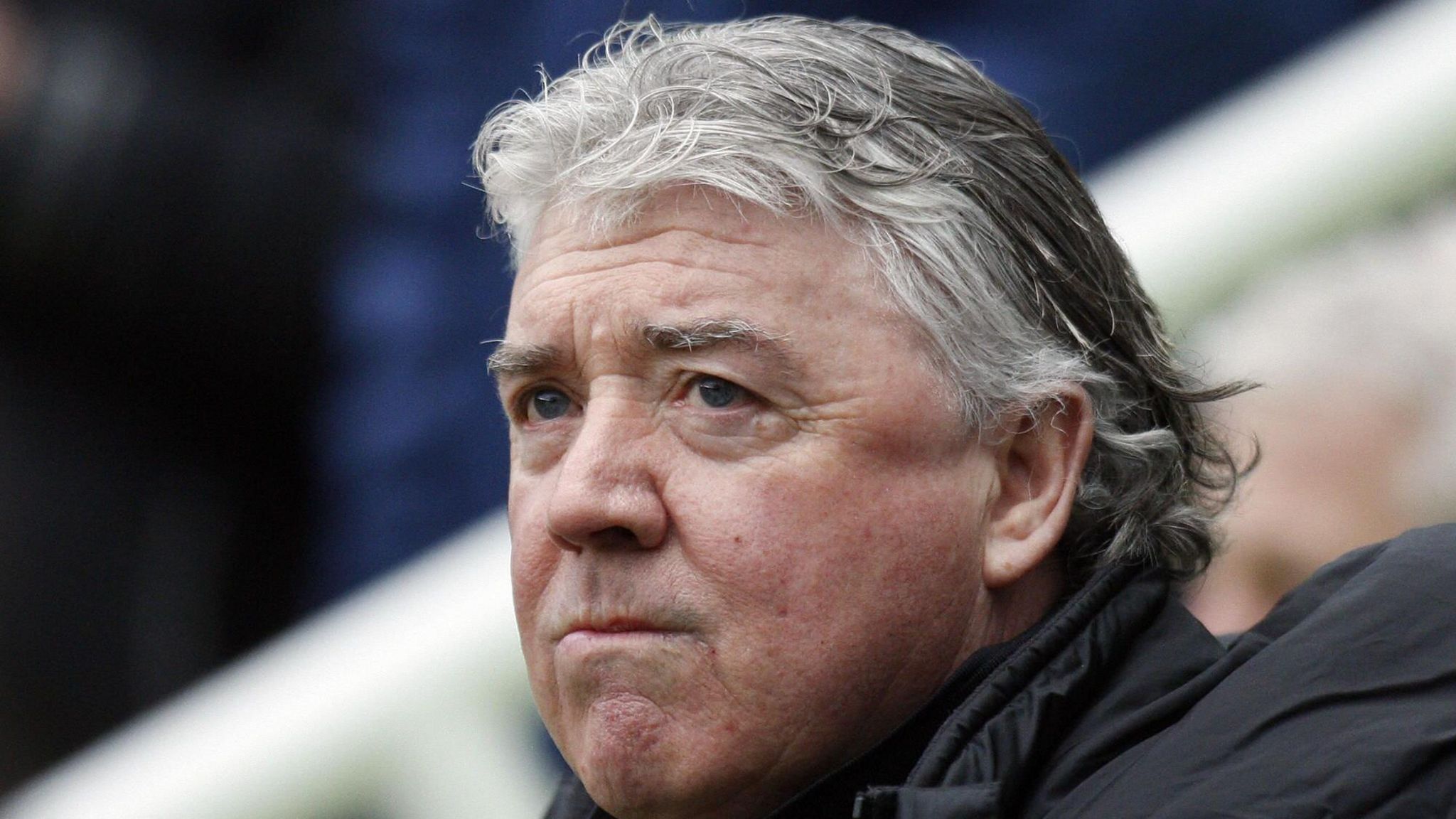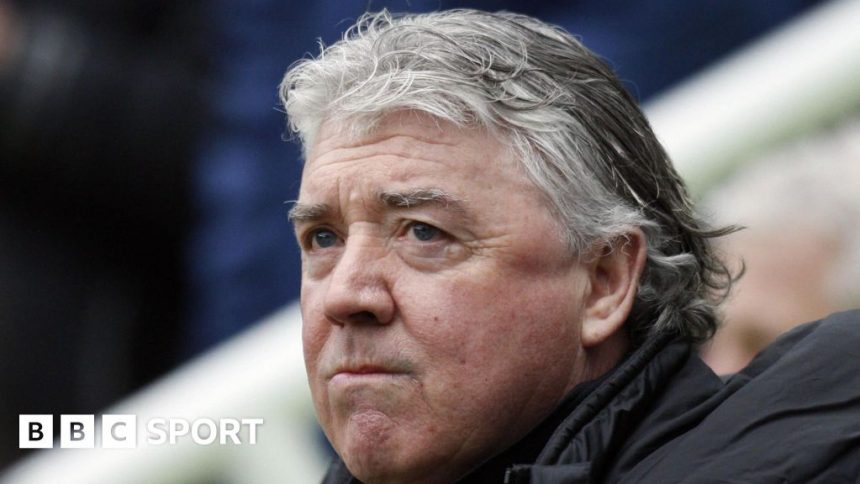Kinnear’s daughter says heading contributed to his death

Joe Kinnear managed clubs including Newcastle, Wimbledon and Luton Town
-
Published
The daughter of the late former Wimbledon and Newcastle manager Joe Kinnear says she feels “his career [as a footballer] killed him” after revealing that an autopsy showed his brain was affected by a dementia believed to be caused by repeated blows to the head.
Kinnear, who played almost 200 times as a defender for Tottenham Hotspur, was diagnosed with the degenerative brain disease in 2015, and died in April at the age of 77.
His family are among a number of claimants taking legal action against some of the sport’s governing bodies over brain injuries allegedly suffered during their careers.
They decided to donate his brain to a study looking at a possible link between dementia and a career in professional football.
And they have now confirmed that it was diagnosed as having chronic traumatic encephalopathy (CTE) – a form of dementia – by Dr Willie Stewart, consultant neuropathologist at Queen Elizabeth University Hospital in Glasgow.
“Dr Stewart intimated to me that CTE was the cause of his dementia and his death,” Kinnear’s daughter Russ Doffman told BBC Sport.
“He was a defender, so it was from heading the ball…[the autopsy] gives you closure, but thinking about it, we just feel angry again because I feel like his career has killed him.
“We learned a lot, but weren’t surprised by the outcome. It does give you clarity.”
Doffman said she had spoken to her mother about donating her father’s brain after hearing from the son of former England and Manchester United player Nobby Stiles, who also had dementia and died in 2020. John Stiles had allowed Stewart to examine his father’s brain, and received a similar diagnosis.
“I knew mum would want to. She didn’t even hesitate, and I think Joe would have wanted it as well, definitely” said Doffman.
“If I hadn’t spoken to John about donating his father’s brain I wouldn’t have known about it. We want to help other families and want to help medical research.”
-
-
Published27 May
-
-
-
Published21 December 2020
-
The autopsy report on Kinnear’s brain – which his family have shared with the BBC – detailed findings that were “entirely consistent with the pathognomonic lesion of chronic traumatic encephalopathy neuropathologic change (CTE-NC)” – a disease that can only be diagnosed after a person’s death.
“To date, the only documented risk factor…is exposure to repetitive head impacts and/or traumatic brain injury…CTE-NC is increasingly documented in former athletes from numerous contact sports, including football…with risk highest in defenders and those with longest playing careers (over 15 years).”
It concluded that his “long history of participation in football as a defender, with clinical presentation characterised by striking behavioural change followed by progressive cognitive decline, is entirely consistent with the finding of extensive CTE-NC pathology at autopsy, and an integrated diagnosis of CTE.”
The autopsy report is expected to form part of the claimants’ case in their ongoing legal action. The claimants allege that the defendants – the game’s lawmaking body Ifab, the Football Association, the English Football League, and the Football Association of Wales – were negligent in failing to take reasonable action to protect players from permanent injury caused by repetitive concussive and sub-concussive blows.
The football authorities have previously said that they cannot comment on ongoing legal proceedings but that they take the welfare of players seriously. The FA has said it plays a “leading role in reviewing and improving the safety” of the game, including supporting “multiple projects in order to gain a greater understanding of this area through objective, robust and thorough research”.






